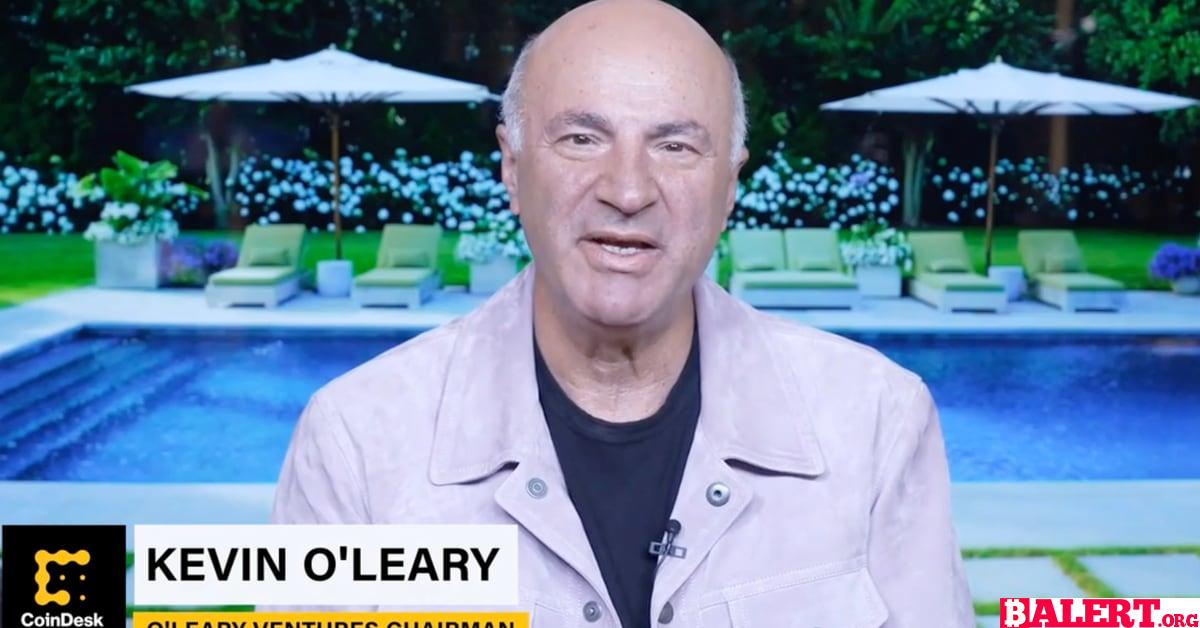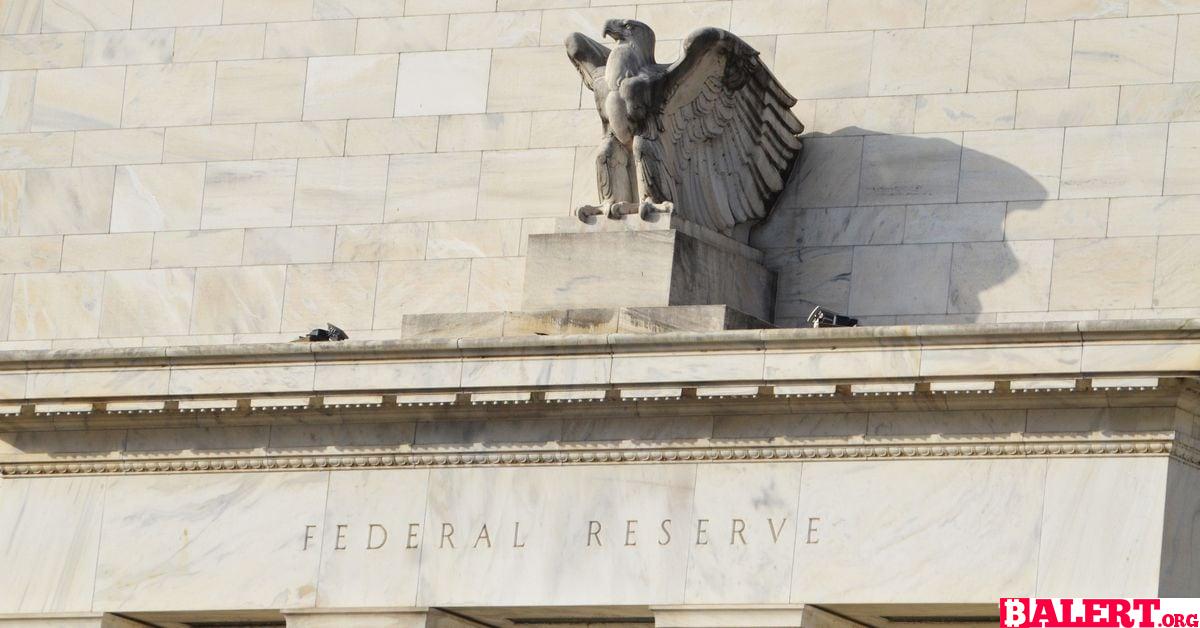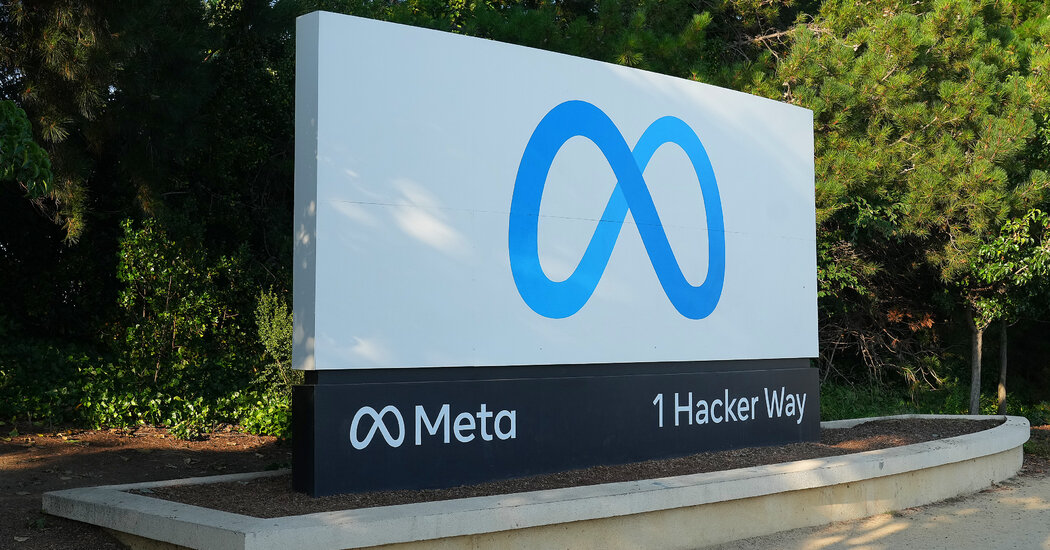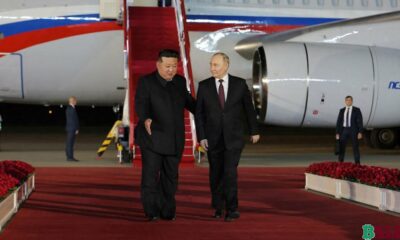Business
Kevin O’Leary Discusses Crypto Investments, Market Trends, and Future Predictions
Join Kevin O’Leary as he explores the world of crypto investments, sharing insights on market trends and future predictions. Discover expert advice and strategies to navigate the evolving landscape of digital currencies.

Kevin O’Leary Discusses Crypto, Investments, and the Future
Kevin O’Leary, the chairman of O’Leary Ventures and popularly known as “Mr. Wonderful” from “Shark Tank,” recently engaged in a captivating conversation with CoinDesk’s Jennifer Sanasie. Below is a lightly edited transcript of their insightful interview.
Jennifer Sanasie: Kevin, your background is absolutely stunning. Are you relaxing by a pool in the Hamptons right now?
Kevin O’Leary: Yes, indeed! The Hamptons is where I am. I thought it would be fitting to celebrate this beautiful summer, especially with the exciting developments in crypto policy. Why not enjoy the moment?
JS: That sounds delightful! It seems you’ve had quite an enjoyable summer. I saw you performing with the Jeff Tuohy band on X, just living life to the fullest, Kevin.
KO: Absolutely! I perform with Jeff’s band every year to keep my musical skills sharp. He keeps improving, and we celebrate that together. Just recently, I had a wonderful lunch with Jamie, who founded Ring, a well-known Shark Tank deal that got away. He sold it to Amazon for a whopping $1.2 billion. We’ve become close friends and spent time with our families at Cisco Brewery before I jammed on stage. It’s a fantastic way to celebrate the 4th of July.
JS: Speaking of Ring, I have to ask about your best and worst investments. Did you invest in Ring?
KO: No, I was the only shark who made him an offer. I proposed $600,000 in debt with 2.5% non-dilutive warrants. He ultimately declined, which I understand, but it would have been a monumental success in Shark Tank history. Not every opportunity can be seized!
JS: Reflecting on your entire career, what do you consider your worst investment?
KO: I’ve certainly made my share of poor investments, but I’ve learned valuable lessons over time. One key takeaway is to trust your gut feeling. If a deal doesn’t sit well with you, there’s likely a good reason for it, and it may end up failing. I’ve learned to rely on my instincts through experience. While I don’t always get it right, I’ve had enough successes to keep me engaged. Ultimately, the winners in your portfolio define your overall success. Interestingly, the deals I think will be my biggest successes often aren’t, while the ones I deem risky sometimes yield massive returns. This is why diversification is crucial in any investment strategy, especially in venture capital.
JS: That lesson seems particularly relevant in the crypto market, where numerous high-risk projects launch daily. Would you say your advice applies to crypto investors?
KO: Absolutely, and I’d add another layer: liquidity. When you’re investing millions in a crypto asset, you must consider whether you can easily exit that investment. Very few tokens offer the liquidity needed for substantial investments, say in the range of $20 to $40 million. My largest holdings are in Ethereum and Bitcoin, and I prefer not to hold them in ETFs because it incurs unnecessary fees. I utilize exchanges instead, focusing on their compliance, liquidity, and security. I’m involved with M2 in the UAE and own a significant stake in WunderFi in Canada, where compliance is robust and they offer over 60 tokens.
JS: Let’s circle back to your experiences in the Hamptons. When fans approach you in public, what investment advice do they typically seek?
KO: Many people are genuinely curious about crypto these days. The narrative has shifted from skepticism to acceptance among the general public. I’d estimate that around 70% of the questions I receive now revolve around crypto—what to invest in, how to allocate it within their portfolios, and where it fits into the broader context of alternative assets.
JS: Considering you have around 18% of your portfolio in crypto—has that changed since we last spoke?
KO: Yes, it has! We recently assessed our investments, and it’s now at 18%. We’re likely to hit 20% soon. Additionally, I have positions in companies like Circle, which I see as key players in the digital payment space. For instance, owning a piece of Circle is like having a stake in the early days of the Nasdaq or the New York Stock Exchange—you benefit from transaction fees regardless of asset price fluctuations.
JS: You mentioned you’re not keen on ETFs. With recent approvals of ETH ETFs, do you anticipate significant inflows into these products, and will they appeal more to older investors?
KO: I believe there will be a dual approach. I expect about 20% of the flow to be funneled into the ETF, as many financial advisers prefer to show their clients ETFs that are compliant. However, I personally wouldn’t pay those fees. With the advent of exchanges like M2 or WunderFi, which provide secure, compliant wallets, I believe that a significant majority (around 80%) of people will gravitate towards direct investment in crypto assets rather than ETFs.
JS: I recently spoke with Anthony Scaramucci, who suggested that Gary Gensler’s regulatory approach has ultimately benefited the industry by weeding out fraudulent actors. What are your thoughts on that?
KO: I’ve faced criticism for my views on Gensler, but I see his consistency as valuable. He has maintained a clear stance on compliance, which is crucial for legitimizing this industry. His aggressive pursuit of bad actors like the FTX and Binance teams may not have been popular, but it’s ultimately strengthened the market’s integrity. I’m now more comfortable investing in compliant platforms like M2 and WunderFi, which align with Gensler’s vision.
JS: Some in the industry feel uneasy about the slow progress toward regulation. How would you address those concerns?
KO: I’d encourage those individuals to understand that embracing Gensler’s approach is necessary to attract the larger institutional investments that require compliance. Large financial institutions won’t engage in the crypto space until they feel secure, and Gensler’s regulations provide that safety net. The survival of early crypto pioneers hinges on this compliance, and I believe it will continue being a critical factor moving forward.
JS: What would you say is your best investment to date?
KO: My best investment has always been in myself—the decision to venture out on my own and become an entrepreneur. Many people hesitate to take that leap due to the associated risks. I encourage everyone to invest in themselves, as it leads to personal freedom and fulfillment that far outweighs monetary gains. Entrepreneurship isn’t easy, but it offers unparalleled rewards and opportunities.
JS: Can you share a recent investment success story?
KO: Certainly! A few years ago, I invested in a cat DNA testing kit company pitched by a passionate entrepreneur named Aniskaya. Initially, I was skeptical, but her enthusiasm and vision convinced me to invest $250,000. The company eventually grew significantly and was acquired by Zoetis, a spin-off from Pfizer, in an all-cash deal. This success exemplifies how you can never predict which investments will pay off. Additionally, I’ve found that many of my most successful investments are in companies run by women, showcasing their incredible management abilities and focus.
JS: As for the bitcoin mining space, do you believe the land used for mining operations will eventually hold more value than the mining business itself?
KO: You’re spot on. Finding states with accessible power, fiber, permits, and supportive regulations is crucial. It’s taken years to build relationships in states like Oklahoma, West Virginia, and North Dakota, where the environment is more conducive to bitcoin mining. In contrast, places like New York have become more challenging due to their regulatory climate. I actively seek opportunities in states that embrace crypto and digital payment systems.
JS: Before we wrap up, let’s discuss the upcoming U.S. elections. President Biden has announced he won’t run for reelection, and Trump is positioning himself as a pro-crypto candidate. How do you see this affecting the crypto landscape?
KO: Trump’s support for crypto and digital payment systems is clear. However, the race is still unfolding as we await further details on the Democratic side. Kamala Harris has not yet outlined her policies, particularly regarding crypto. The upcoming election will likely hinge on policy rather than party affiliation, and I hope to see a focus on pro-crypto, pro-digitization strategies, as these will benefit entrepreneurship and the economy.
JS: Lastly, you mentioned Jamie Dimon and his potential interest in the Treasury Secretary position. What implications would that have for the crypto industry if he were appointed?
KO: Jamie is a pragmatic leader. While he may not be a fan of bitcoin, he recognizes the demand from his clients. As the largest asset manager globally, Larry Fink has signaled an openness to bitcoin, which will inevitably influence the broader market. Having someone with Dimon’s expertise in a financial policy role would be beneficial, as it’s essential to focus on sound policy rather than political affiliations.
Business
Bhutan’s Strategic Investment in Bitcoin: A New Era for the Himalayan Kingdom
Explore how Bhutan is embracing Bitcoin as a strategic investment, marking a transformative shift for the Himalayan kingdom. Discover the implications of this move on its economy, sustainability, and future in the digital age.

Buddhist Kingdom’s Bold Move into Bitcoin
A stunning landlocked nation nestled between India and China, Bhutan has made headlines by accumulating significant bitcoin (BTC) holdings totaling over $780 million in recent years. This amount represents nearly one-third of the country’s gross domestic product (GDP), positioning Bhutan as the holder of the fourth-largest state-owned stash of BTC, as revealed by the on-chain analytics tool Arkham.
Known for its unique approach to governance, Bhutan emphasizes the happiness of its fewer than 900,000 citizens as a more meaningful metric of well-being than traditional economic indicators. This Himalayan kingdom has become the second nation, following El Salvador, to officially embrace BTC as part of its national strategy, incorporating it into the state-owned Druk Holdings fund.
According to Arkham, Bhutan has established bitcoin mining facilities across various locations, with the most significant operation situated on the site of the now-defunct Education City project. Unlike many governments that acquire BTC through asset seizures related to law enforcement, Bhutan’s holdings have originated from extensive bitcoin mining activities, which have seen a remarkable increase since early 2023.
These mining operations are likely connected to Bitdeer (BTDR), a prominent player in the cryptocurrency mining sector. In 2023, the Singapore-based firm announced its collaboration with the Bhutanese government to develop cryptocurrency mining operations in Southeast Asia, successfully raising over $500 million for this ambitious venture. Following this announcement, Bitdeer disclosed that it had completed the first phase of a 100 megawatt (MW) mining facility.
Looking ahead, Bitdeer announced plans to expand Bhutan’s mining capacity to a staggering 600 MW by 2025, reflecting the growing significance of this initiative.
Despite its small geographic size, even smaller than Switzerland, Bhutan faces challenges such as limited economic diversification and an underdeveloped private sector. The nation primarily relies on sectors like hydropower, tourism, and agriculture to generate revenue. In 2022, Bhutan’s GDP was recorded at just under $3 billion, approximately half that of the Maldives.
To bolster its economy, Druk Holdings is exploring opportunities across various sectors. The organization’s website highlights “digital assets” as a key focus area in its technology-driven investment strategy, which also includes projects in hydropower and emerging digital realms like the metaverse.
Recent activities in the Druk wallets, as monitored by Arkham, indicate a flurry of deposit and withdrawal transactions in recent weeks. The fund has received multiple deposits of up to 2 BTC from Foundry, another mining entity, as well as from other unidentified bitcoin addresses during the past week. Additionally, Druk Holdings has periodically transferred bitcoin to various addresses, including crypto exchanges. One notable transaction from early July involved a transfer of over $25 million worth of BTC sent to the crypto exchange Kraken, suggesting that it was likely sold to capitalize on market conditions.
Business
Bitcoin and Crypto Markets React to Anticipated Federal Rate Cuts
Explore how Bitcoin and cryptocurrency markets are responding to the anticipated Federal rate cuts. Discover the implications for investors and the broader financial landscape in this insightful analysis.

Bitcoin and Crypto Markets Await Federal Rate Cuts
Bitcoin (BTC) and the broader cryptocurrency markets have seen minimal fluctuations over the past 24 hours as traders remain cautious ahead of the upcoming Federal Open Market Committee (FOMC) meeting on Wednesday. This meeting is particularly significant, as officials are anticipated to announce the first interest rate cuts in four years. Currently, Bitcoin is trading just below $58,500, specifically at $58,480, reflecting a relatively stable performance. The CoinDesk 20 (CD20), a benchmark for the largest digital assets, has experienced a slight increase, trading above the 1,800 mark.
In terms of daily activity, inflows into Bitcoin exchange-traded funds (ETFs) have amounted to $12.9 million, with a substantial portion directed towards BlackRock’s IBIT. Analysts widely expect the Fed to unveil a rate cut on September 18, signaling the beginning of a potential easing cycle that has historically provided support for risk assets, including Bitcoin.
As of Tuesday morning in Asia, the 30-Day Fed Funds futures prices indicate that traders perceive a 67% likelihood of a significant 50 basis points rate cut, bringing the target range to 4.7%-5%. This is an increase from Monday’s implied probability of 50% and a notable rise from the 25% probability reported a month ago. On Polymarket, traders are assigning a 57% chance of a decrease exceeding 50 basis points, alongside a 41% chance of a 25 basis points cut.
Meanwhile, the overall market remains relatively stable. Noteworthy movements have been observed, such as XRP rising by 3.5%, SUI increasing by 2.5%, and Fantom’s FTM surging by 10.5%, buoyed by positive market sentiment surrounding its forthcoming rebranding to Sonic.
Trump’s World Liberty Financial to Introduce WLFI Token
In other news, the team behind World Liberty Financial, a project receiving endorsement from former President Donald Trump and his family, has announced the launch of a governance token. However, it is crucial to note that this token will only be available to accredited U.S. investors. During a livestream that lasted over two hours, the team highlighted that the token is intended for governance participation rather than for economic profit and did not disclose a specific launch date during the X Spaces stream.
Throughout the livestream, Trump himself did not specifically mention the token or provide an endorsement. Instead, he reiterated his general views on cryptocurrency policy, much of which echoed his previous public statements, including those made at the recent Bitcoin Conference held in Nashville.
Figure Markets Launches Exchange with Real Estate-Backed Yields
In a groundbreaking development within the crypto space, Figure Markets has announced the launch of its exchange, coinciding with the Token2049 event in Singapore. Founded by Mike Cagney, a co-founder of SoFi, Figure Markets introduces an innovative method for generating yields for users who store their cryptocurrency on the platform.
According to a recent release, Figure Markets claims it can offer returns of up to 8% for non-USD and stablecoin balances. This is achieved by leveraging a fund backed by real-world assets, particularly home equity loans. The operational model involves traders depositing their funds into Figure Markets, which are then pooled and lent to Figure Technologies for the issuance of secured home equity loans. The interest paid by borrowers on these loans creates a spread that not only covers operational costs but also provides returns to investors. These investors benefit from dual recourse protections, daily liquidity, and interest payments that accrue based on the duration of their investments.
While Real World Assets (RWAs) are progressively becoming a noteworthy aspect of the cryptocurrency industry, there are still very few applications that seek to derive yield from these assets to support their operations. Prior to the launch of Figure in 2023, Cagney had withdrawn the company’s bid for a U.S. federal bank charter amid regulatory scrutiny, opting instead to pursue partnerships with established banks.
Business
Meta Bans Russian Media Outlets Amid Disinformation Concerns
In response to rising disinformation concerns, Meta has imposed bans on several Russian media outlets. This decision highlights the ongoing battle against misinformation and the platform’s commitment to ensuring accurate information for its users.

Meta Takes Strong Action Against Russian Media Outlets
On Monday, Meta announced a significant initiative to prohibit Russian media outlets, including the state-funded television network RT, from utilizing its platforms. This decision comes in light of ongoing scrutiny in the United States regarding these outlets’ involvement in covert influence campaigns designed to manipulate online discourse across various social media platforms.
Meta, the parent company of popular applications such as Facebook, Instagram, and WhatsApp, stated that the ban would be implemented in the coming days. This decisive action marks an escalation in the ongoing efforts to combat Russian state media actors, which U.S. intelligence officials have identified as key players in disinformation operations that span the globe, infiltrating the world’s largest social networking sites.
In a formal statement, Meta expressed, “After thorough consideration, we have expanded our current enforcement measures against Russian state media outlets. Rossiya Segodnya, RT, and other related entities are now prohibited from our applications worldwide due to their involvement in foreign interference activities.”
Recently, U.S. authorities have tightened their grip on RT, particularly for its attempts to meddle in the upcoming presidential election scheduled for November. On Friday, the United States, in conjunction with Canada and Britain, accused RT of functioning as a conduit for Russian intelligence agencies. They announced new sanctions aimed at curtailing international funding sources that support disinformation campaigns globally.
This crackdown follows the federal indictment of two RT employees, who allegedly funneled at least $9.7 million to finance American podcasters on Tenet Media, a video-streaming service based in Tennessee. The goal was to amplify the Kremlin’s propaganda and undermine the integrity of the American democratic process.
Secretary of State Antony J. Blinken emphasized the broader implications of these tactics, stating, “We’re revealing how Russia employs similar strategies globally.” He further noted, “The Russian weaponization of disinformation to destabilize and polarize free and open societies is a challenge that impacts every corner of the world.”
-

 Business5 months ago
Business5 months agoObituary: Dan Collins
-

 Business3 months ago
Business3 months agoThe Significance of Jackson Hole: A Central Banking Tradition
-

 Gaming5 months ago
Gaming5 months agoMore than a thousand students vowed not to work for Amazon and Google due to the Nimbus Project.
-

 World5 months ago
World5 months agoRussia and North Korea Strengthen Defense Ties
-

 Business5 months ago
Business5 months agoJump Crypto Invests $10 Million in Pro-Crypto PAC
-

 Tech2 months ago
Tech2 months agoNew Leaks and Features About the Samsung Galaxy S25 Ultra
-

 Article5 months ago
Article5 months agoCreative Design Applications Developed with Artificial Intelligence
-

 Gaming5 months ago
Gaming5 months agoThe Inspirational Success Story of Avon’s Founder Who Sold Books Door to Door











